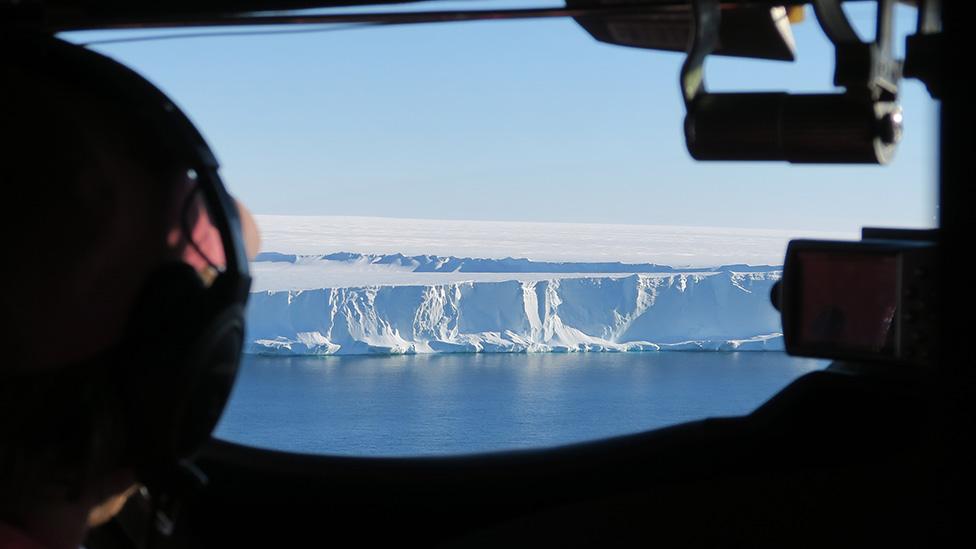Polar Medal winner Catrin Thomas and 17 Antarctic trips
- Published
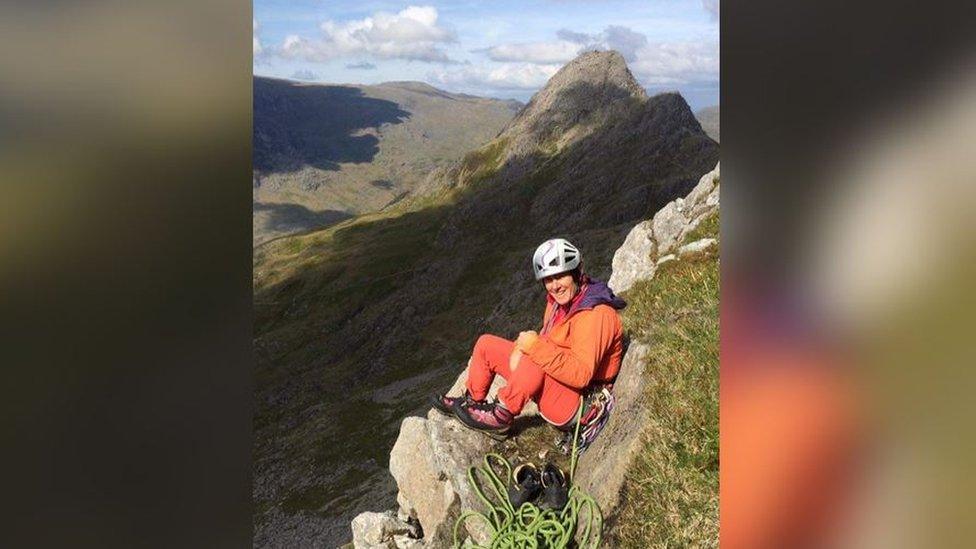
When Catrin Thomas isn't in Antarctica, she spends much of her time mountaineering
Explorer Captain Robert F Scott held one as did Sir Ernest Shackleton, Sir Edmund Hillary, Sir Vivian Fuchs and Sir Ranulph Fiennes. Now field guide Catrin Thomas's name can be added to the list of those awarded the Polar Medal.
The medal is given to those who give valuable service in conditions of "extreme hardship" and "who over prolonged periods of time and in harsh conditions have worked to advance knowledge of the polar regions".
And after spending the last 17 summers in Antarctica, Catrin most definitely fits the bill.
But does the 54-year-old who lives in Llanberis in Gwynedd have any intention of swapping her usual freezing summers for a trip lounging on a beach? It would seem not.
"One season in Antarctica in the howling storms and cold may be enough for most people," she said.
"But for me, 17 years after I first stepped out onto the snow and ice, I cannot contemplate giving it up."
Catrin is a field guide for the the British Antarctic Survey (BAS) and describes her work as "always challenging".
"I have helped scientists drill holes 2km deep into an ice stream to assess the impact of climate change, and accessed remote cliffs with geologists in order to take rock samples," she said.
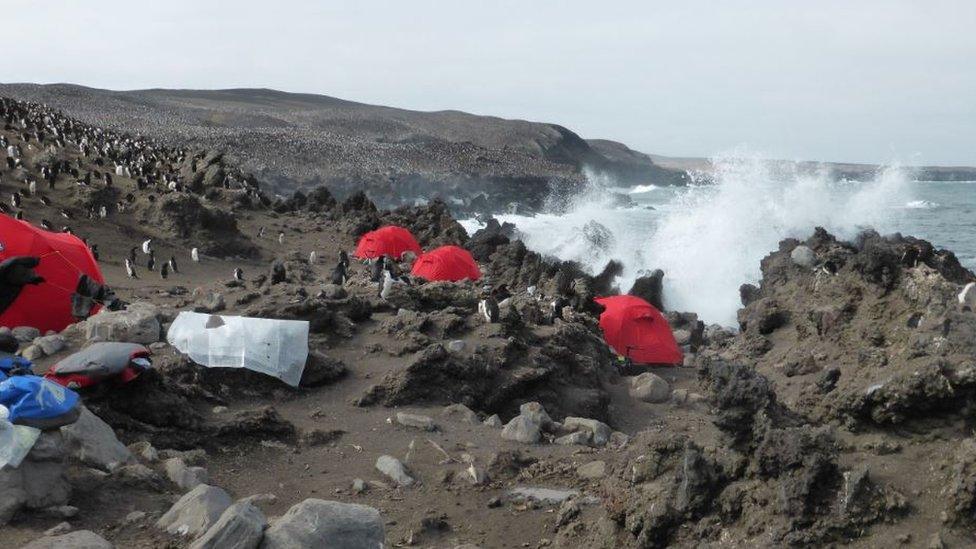
Catrin frequently helps scientists and documentary makers in their work with penguins
"I have also been lucky enough to work with wildlife documentary makers.
"In one trip in 2015, a group of us took a yacht and landed in big seas on the remote Zavodovski Island deep in the Southern Ocean.
"We made camp on a muddy outcrop, then spent weeks filming millions of chinstrap penguins.
"They are the most miserable, grumpy creatures I have ever met - far more so than the Emperor or Kings - and the noise and smell was just incredible," she said.
Catrin describes the Antarctic as a varied continent with hundreds of miles of flat snow and ice, alpine peaks, glaciers and the smaller sub-Antarctic islands which are a haven for wildlife.
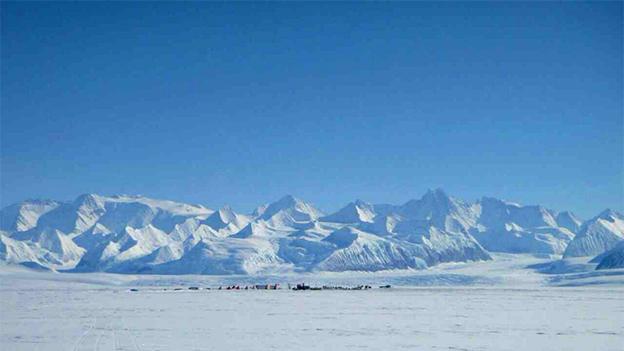
The frozen landscape is highly varied, from flat ice to stunning alpine peaks
"It is a land of extremes," she said.
"On the one hand, when you are alone on the snow on a calm day, there is a rare, deep silence so quiet you can hear a pin drop.
"But there is also the extraordinary noise of the wildlife, when you are surrounded by hundreds of thousands, if not millions of penguins, all chattering away in a maddening racket."
So what is Catrin's motivation to spend her time in such a environment?
"I have always loved remote, sweeping landscapes and the wilderness," she said.
"Growing up in Birmingham, I was lucky enough to experience outdoor education courses at Ogwen Cottage in north Wales, which inspired my love of the outdoors.
"This developed into a passion for mountaineering, and I spent many summers in the Alps before travelling to more remote places such as Greenland and Bolivia.
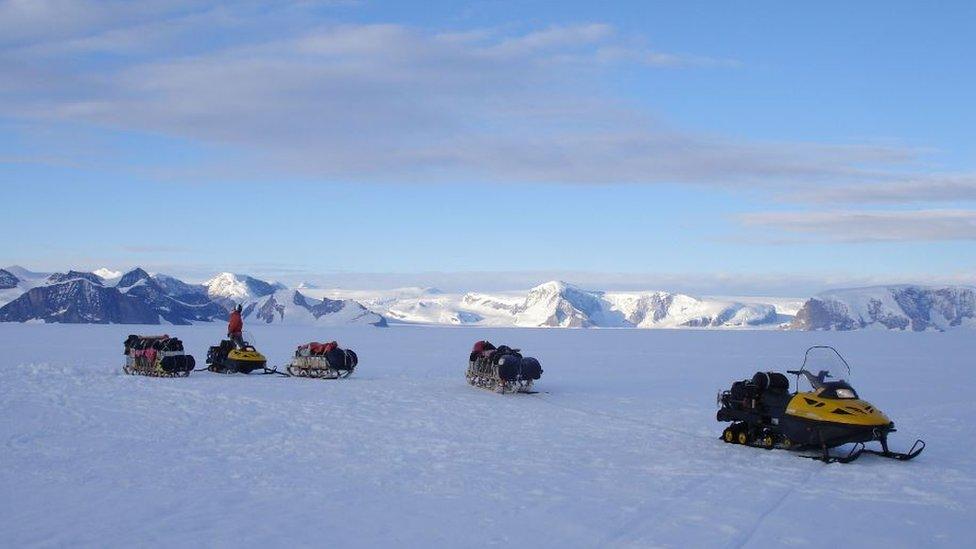
Catrin and other BAS field guides make their way around by skidoos, which can often become covered in snow during storms
"I was in my thirties, working as a freelance outdoor instructor when I saw an opportunity to join BAS for a season, and jumped at the chance."
And each trip brings its own challenges.
"Sometimes you and just one other might be dropped off on an ice shelf in the middle of nowhere, or on a remote island for weeks at a time without any other company.
"Other times you may be with a group as large as 12 responsible for managing a field camp and ensuring everyone is looked after."
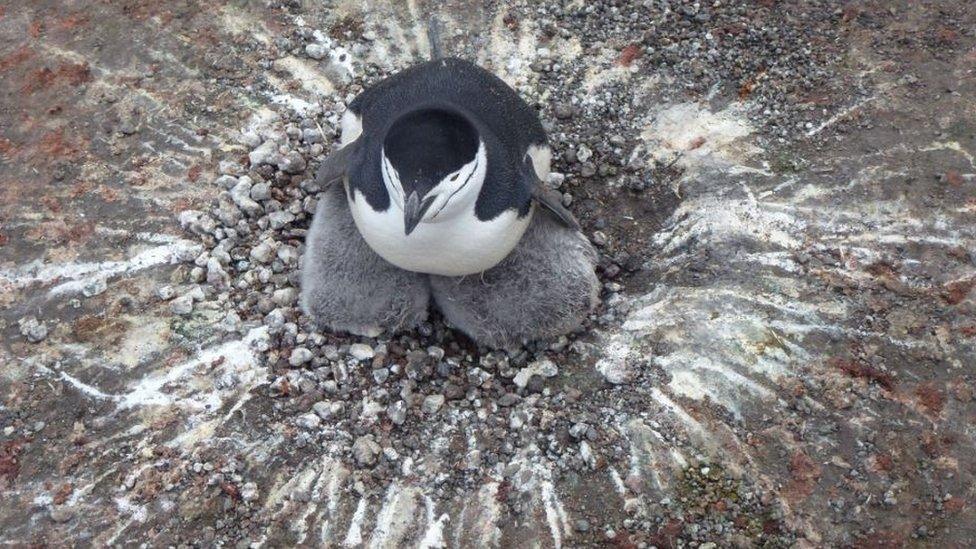
Catrin's work often involves close encounters with penguins
But each trip as a similar theme - the weather.
"It can reach below -20C, so making sure everyone avoids cold-related injuries is critical," she said.
"Storms too are common so it is important to ensure the field camps are well set up to cope with this.
"If not, the snow can end up burying skidoos and field equipment in a matter of hours.
"Often the weather is so wild you have to hunker down in your tents - a quick rescue if something goes wrong might not be possible.
"But at least - as I only visit during the Antarctic summer - there is always 24 hours of day light, which to my mind is a lot more preferable to dark British winter!"
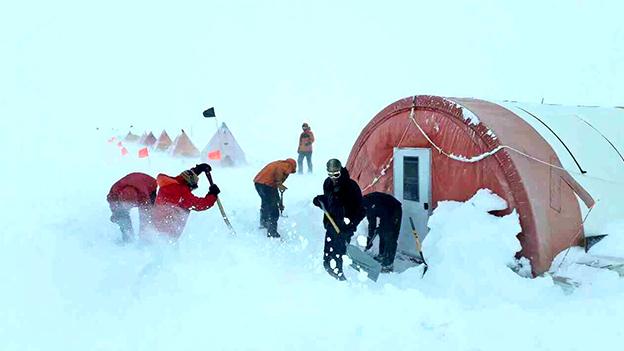
Conditions in Antarctica are hard, with temperatures down to -20C or lower
But what about the remoteness of the environment?
"I love the fact you get a reprieve from the real world," she said.
"Once in a field camp, there are limited emails and phone calls.
"But the people you work with tend to be interesting characters, so socially, the seasons never feel that isolated.
"In many respects, it is these work colleagues who make the work so enjoyable, and are a key reason for returning year after year."
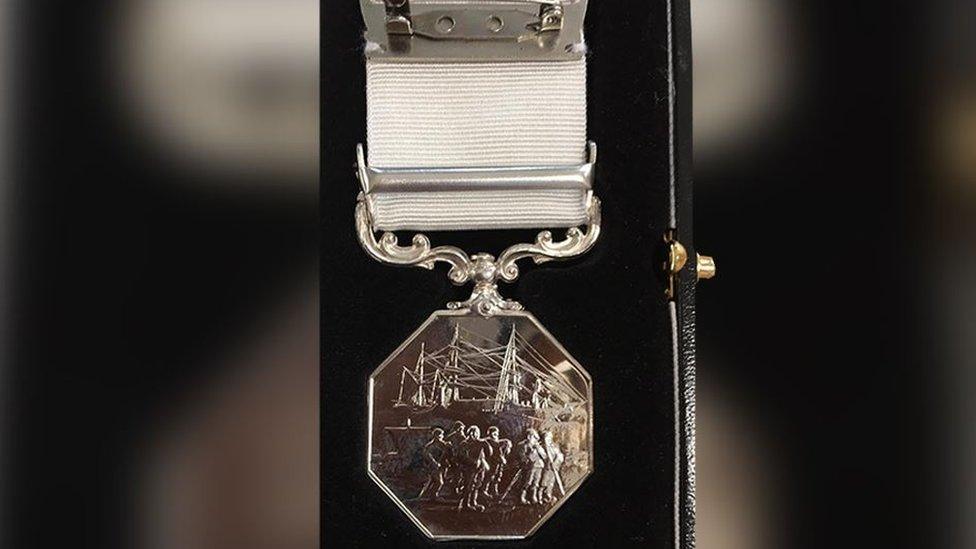
The Polar Medal, awarded to those who work to advance the knowledge of the polar regions
Catrin says she is "proud" to be awarded the Polar Medal, which will take place at a ceremony near her home in north Wales.
"Once I finally hang up my Antarctic boots, it will be a nice reminder of the many months I have spent over the years in this chilly, and often very smelly, pocket of heaven."
- Published9 April 2019
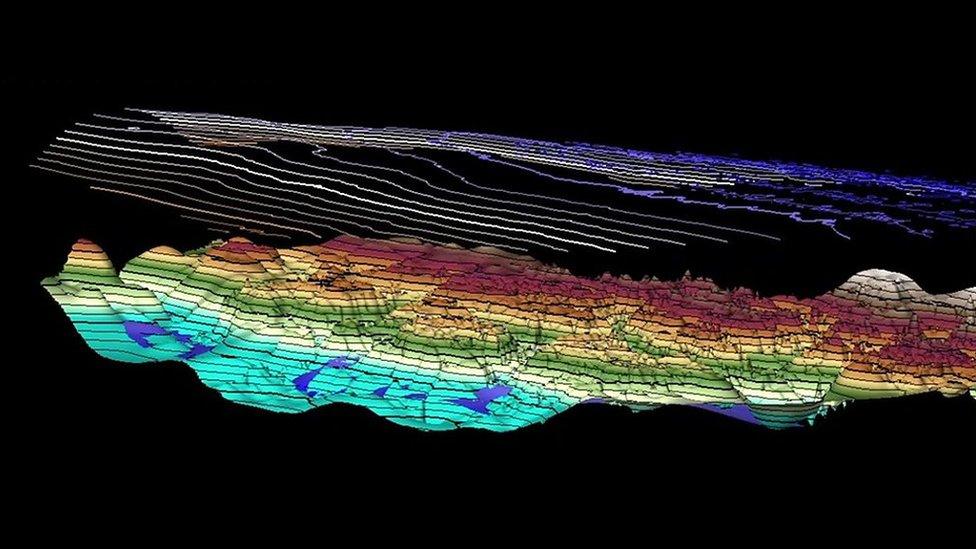
- Published9 April 2019
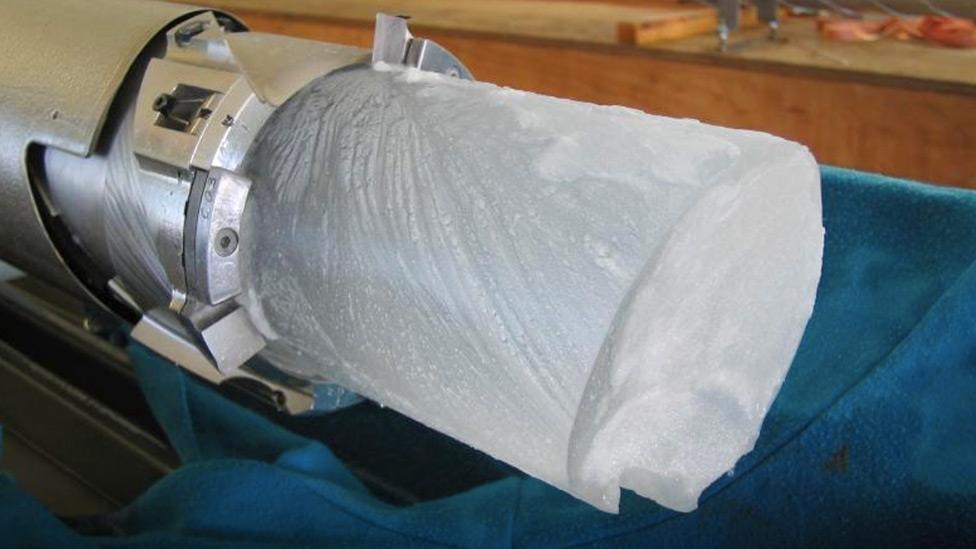
- Published28 February 2019
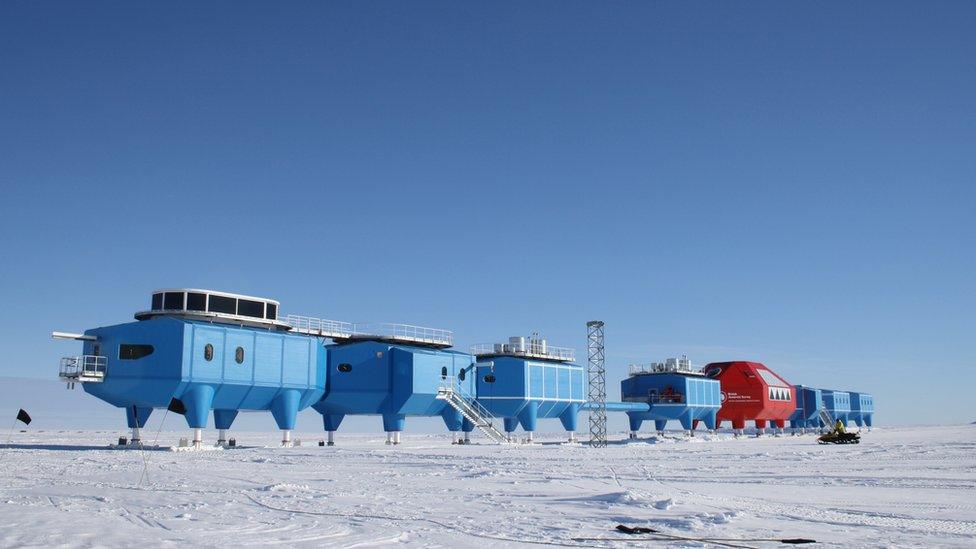
- Published5 April 2019
